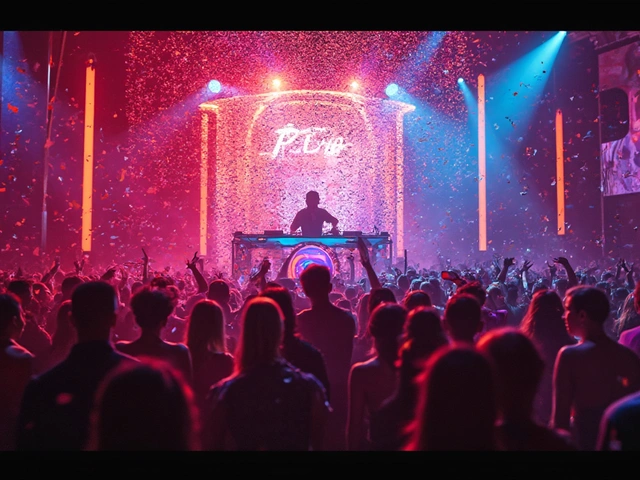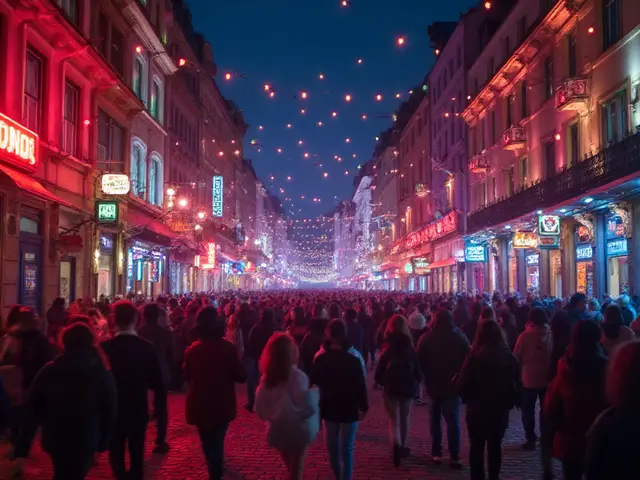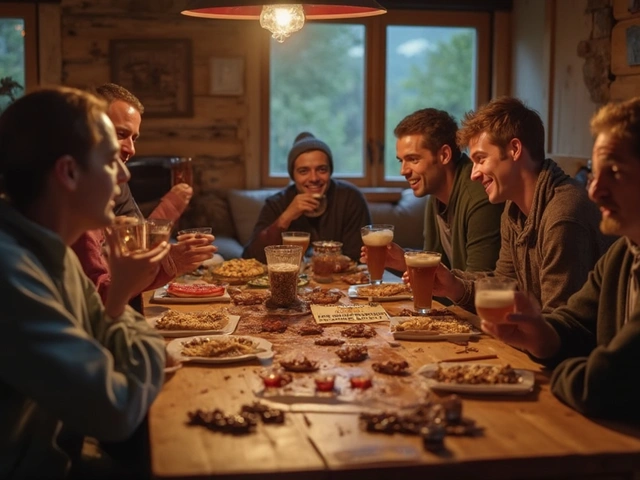
When you think of Munich, you probably picture Oktoberfest, lederhosen, and giant steins of beer. But the real heartbeat of the city doesn’t just beat in festival tents-it hums in quiet backstreet lounges, cozy wine bars, and rooftop spots where locals unwind after a long day. If you’re looking for more than just tourist traps, here’s where the real drinking scene lives.
Spatenhaus am Platzl
You can’t talk about Munich without mentioning Spatenhaus. It’s not flashy. No neon signs. No bouncers. Just a 150-year-old brewery with wooden benches, a long bar, and beer that flows straight from the tap. This is where Bavarian tradition meets daily life. Locals come here after work, not for the view, but for the Spaten lager-crisp, clean, and served at the perfect temperature. The food is simple: pretzels, Obatzda, and cold cuts. No menus. Just what’s fresh. It’s packed by 6 p.m., but that’s the point. If you want to blend in, order a Maß, sit at the counter, and watch the regulars chat like they’ve known each other since kindergarten.
Der Wirt
Down a narrow alley near the Englischer Garten, Der Wirt feels like stepping into a 19th-century tavern. The ceiling is low, the walls are dark wood, and the beer is poured by a man who’s been here since 1987. What makes it special isn’t the decor-it’s the atmosphere. No music. No TVs. Just the clink of glasses and low conversation. They serve eight house beers, all brewed within 30 kilometers of the city. Try the Helles-it’s light, balanced, and perfect for sipping slowly. The bar doesn’t take reservations. You wait. You stand. You talk to the person next to you. That’s how you get invited to the next round.
Bar 10
If you’re looking for cocktails that don’t taste like syrup, head to Bar 10. It’s tucked into a quiet side street in the Glockenbachviertel, a neighborhood known for its artsy vibe. The bartender doesn’t wear a bow tie. He wears a flannel shirt and asks you what kind of night you’re having. Then he makes you something that fits. One of their signature drinks, the Munich Mule, uses local gin, ginger syrup made in-house, and a splash of lemon verbena. It’s refreshing, herbal, and nothing like the sugary cocktails you’ll find in tourist zones. The place is small-only 12 seats. You’ll often find designers, writers, and musicians here, talking about films or new exhibitions. It’s not loud. It’s not busy. But it’s alive.
Starkbierzeit at Hofbräuhaus
Every February, Munich celebrates Starkbierzeit-the strong beer season. But most visitors don’t know that the real magic happens in the back room of Hofbräuhaus, away from the polka bands and selfie sticks. That’s where the locals go for Starkbier, a dark, rich beer that clocks in at 8% ABV. It’s not for everyone. It’s thick, malty, and tastes like roasted nuts and dark bread. But if you’ve had enough of light lagers, this is your moment. The staff serve it in small glasses, so you can try a few without overdoing it. The back room is dim, quiet, and smells like oak barrels. No one rushes you. No one takes your photo. You just sit, sip, and let the warmth settle in.
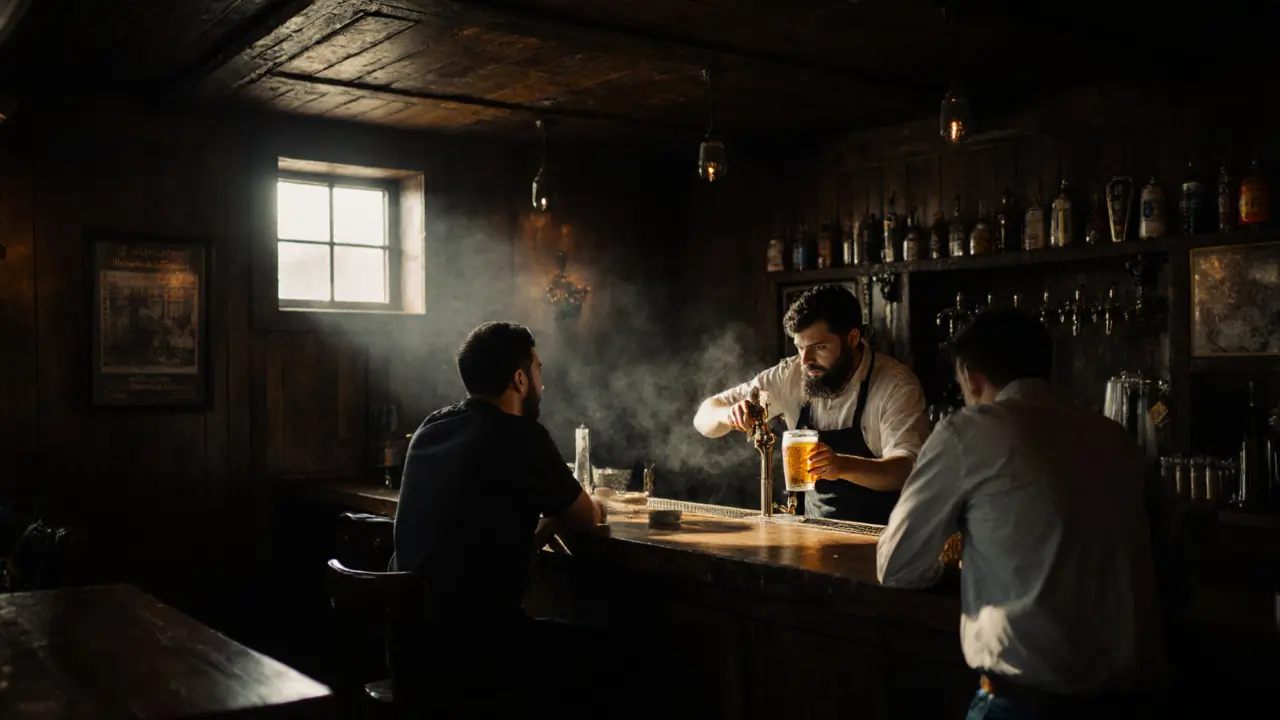
Die Wilde Rose
Wine lovers, this one’s for you. Die Wilde Rose is a tiny, unassuming spot in Schwabing that’s been open since 1992. The owner, a former sommelier from Bordeaux, imports only small-batch wines from family-run vineyards in Germany, Austria, and the Alsace region. There are no labels on the bottles-just handwritten notes on a chalkboard. You tell her what you like: fruity? earthy? bold? She picks three glasses and lets you taste them side by side. Most bottles cost under €25. The cheese board is local, the bread is baked next door, and the playlist is always jazz-soft, slow, and never loud. It’s the kind of place you stumble into and end up staying for three hours.
Alte Kanzlei
Once a government office, now a rooftop lounge with panoramic views of the city. Alte Kanzlei sits on top of a 1920s building near the Marienplatz. The space is modern but not cold-exposed brick, leather sofas, and floor-to-ceiling windows. The drinks are inventive: a Black Forest Sour with cherry liqueur and smoked salt, or a Alpine Gin Tonic with juniper berries and spruce tips. The real draw? The sunset. At 5:30 p.m. in winter, the light hits the Frauenkirche just right, turning the whole square gold. You’ll find young professionals here after work, sipping gin and talking about startups, art shows, or weekend trips to the Alps. It’s not cheap-cocktails start at €14-but it’s worth it once a week.
Die Bierstube
For beer purists who hate gimmicks, Die Bierstube is a sanctuary. It’s in the basement of a 17th-century building, with stone walls and a ceiling so low you have to duck. They serve 20 beers on tap, all from Bavarian microbreweries you’ve never heard of. No Heineken. No Guinness. Just local, unfiltered, unpasteurized brews. The staff will tell you the story behind each one-who brewed it, where the hops came from, how long it aged. They don’t push sales. They don’t rush you. You sit, you drink, you listen. It’s not a bar. It’s a lesson in beer culture.
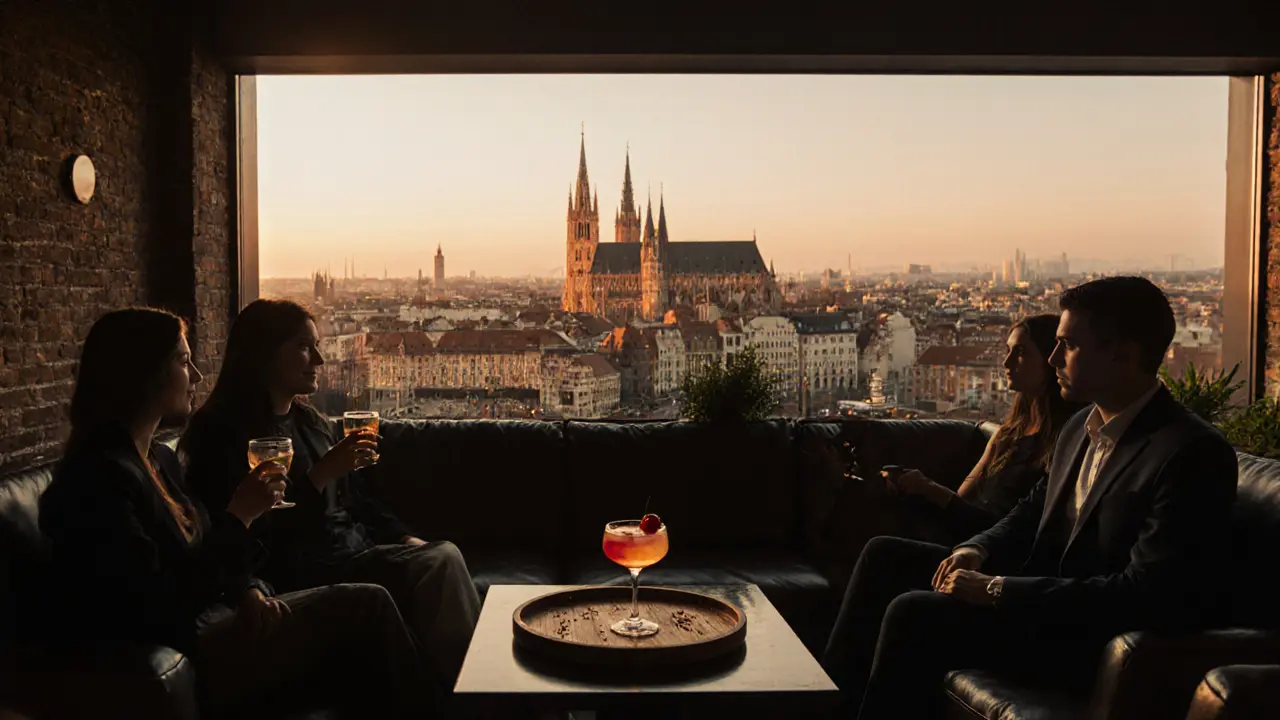
What Makes a Great Munich Bar?
Not all bars in Munich are created equal. The best ones don’t try to be trendy. They don’t have Instagrammable walls or DJs spinning EDM. The real ones are quiet, consistent, and rooted in place. Look for these signs:
- Beer on tap, not in bottles-unless it’s a rare craft brew
- Staff who know the names of regulars
- No English menus-just German, maybe a few handwritten notes
- People over 40 outnumber tourists
- It’s full by 7 p.m., not midnight
If you find a place that checks three of these, you’ve found your new favorite spot.
When to Go
Weekdays after 5 p.m. are ideal. That’s when the office crowd shows up, the energy shifts from touristy to local, and the real conversation starts. Avoid weekends unless you’re okay with crowds. Even then, skip the areas around Marienplatz and Viktualienmarkt. Head to Glockenbachviertel, Schwabing, or Haidhausen instead. Those neighborhoods have soul.
Final Tip
Don’t order a beer by name. Say "Ein Helles, bitte"-it’s the most common, and the most authentic. If you’re feeling adventurous, ask the bartender: "Was trinken Sie heute?"-What are you drinking today? They’ll point you to something new. That’s how you find the hidden gems.
What’s the best time to visit Munich bars to avoid tourists?
Go on weekdays between 5 p.m. and 8 p.m. That’s when locals head out after work. Tourists are still at dinner or back at their hotels. Avoid weekends, especially Friday and Saturday nights, when the city center fills up with visitors. Neighborhoods like Haidhausen, Schwabing, and Glockenbachviertel stay local even on weekends.
Are Munich bars expensive?
It depends. Traditional beer halls like Spatenhaus or Der Wirt charge €11-€13 for a Maß of lager. That’s standard. Cocktail bars like Bar 10 or Alte Kanzlei charge €12-€16 per drink. Wine bars like Die Wilde Rose offer glasses from €8. You can easily spend €20-€30 for a few drinks and snacks. But if you stick to local beer spots, you can have a great night for under €25.
Do I need to make reservations?
Most traditional bars don’t take reservations. You wait. You stand. You join the line. That’s part of the experience. Rooftop lounges like Alte Kanzlei and some wine bars accept bookings, especially on weekends. If you’re going to a popular spot on a Friday night, it’s smart to call ahead. But for the real local spots, showing up early and being patient pays off.
Can I find non-alcoholic options in Munich bars?
Yes, but not everywhere. Traditional beer halls usually only serve beer and mineral water. But newer spots like Bar 10, Die Wilde Rose, and Alte Kanzlei offer quality non-alcoholic drinks-like house-made ginger beer, kombucha, or zero-proof cocktails made with botanicals. Ask for "alkoholfrei" and you’ll get something thoughtful, not just soda.
What’s the difference between a Biergarten and a Bar?
A Biergarten is outdoor, usually with long wooden tables, and often attached to a brewery. You bring your own food or buy from a nearby stand. A bar is indoors, serves drinks and small snacks, and has a more intimate, controlled atmosphere. Biergarten is for sunny days and big groups. A bar is for quiet conversations and sipping slowly. Both are essential to Munich’s drinking culture.

